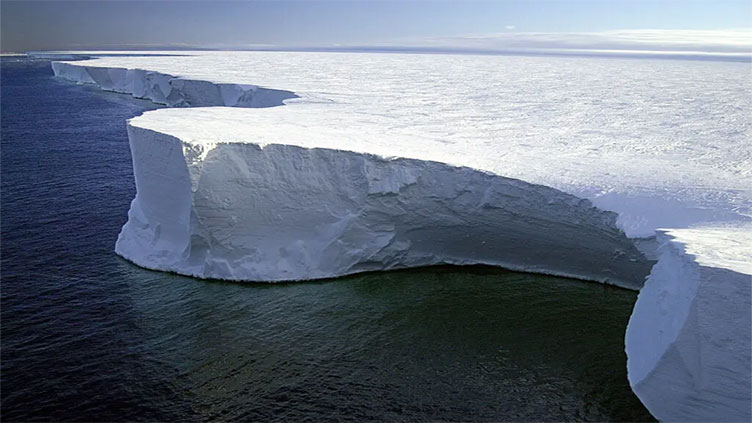Antarctic ice-shelf melting is 'unavoidable' as scientists urge humans to adapt

WeirdNews
The finding offers a glimpse of future sea level rise and its potentially devastating effects
(Web Desk) - Critical ice shelves in West Antarctica will melt in the near future no matter what, according to a new study published Monday.
The finding offers a glimpse of future sea level rise and its potentially devastating effects on coastal areas. But despite the dire prediction, the study's authors called for courage as humans need to meet the challenge these rising and warming seas present to our societies.
"It's not great news," said Kaitlin Naughten, of the British Antarctic Survey, during a press call last week.
"Our simulations suggest that we are now committed to a rapid increase in the rate of ocean warming and ice shelf melting for the rest of the century."
But, Naughten added, giving up as a result of the findings should not be an option.
"Courage is the resolve to do well, without the assurance of a happy ending," Naughten said.
Ice shelves are the floating extensions of the land-based ice sheets that cover most of the Antarctic continent — essentially, they hold the ice sheets back from the sea. If the shelves melt, the ice sheet could follow suit.
The melting West Antarctic Ice Sheet is already the biggest contributor to sea level rise. But the sheet still has the potential to add more than 17 feet to global sea levels.
The new study, published in Nature Climate Change, focused on the response of the ice shelves to continued ocean warming, and found that in there is not much people can do at this point to stop them from melting.
The ocean around the ice shelves will warm at three times the historical rate if climate change continues unabated. That result holds true if the world manages to meet the 2.0-degree Celsius or even 1.5-degree Celsius targets laid out in the Paris Agreement.
"Over the next couple of decades, our actions won't make any difference," Naughten said. "And those could be a really crucial couple of decades for the glaciers involved."
According to a commentary in Nature Climate Change from Taimoor Sohail, of the University of New South Wales, the study "represents the most comprehensive set of future projections" on the region so far. But both Sohail and Naughten's team stress that the results need to be further validated using other models of the region.
The last few weeks have brought several worrying discoveries about the planet's dwindling ice to light. One recent study found that the melting Antarctic continent had already poured more than 7 trillion tons of water into the ocean over a 25-year period. Sea ice in the southern hemisphere is also in trouble, with record-low levels this year alarming scientists.
At the other pole, things are no better: Greenland's ice sheet, with enough water to raise global sea levels more than 20 feet, lost 196 billion tons of ice in just the last 12 months, and hasn't seen a net gain of ice since 1996.
In a study released last week, scientists found that the entire Greenland ice sheet could undergo an "abrupt" loss if warming gets to only 1.7 degrees Celsius above pre-industrial levels, only fractions from where the planet is now.
Naughten said it is important to remember that West Antarctica is only one area, and it's important to consider sea level rise as a global issue.
She said the results do not extend to the East Antarctic ice sheet, which contains ten times as much ice, and is considered more stable, at least for the moment.
She also cautioned against a fatalistic acceptance of the "unavoidable" results seen in this study, since so many other impacts of climate change — from bleaching coral reefs to the deadliest of heat waves — can be lessened with each avoided ton of greenhouse gas emissions.
Naughten quoted climate scientist Kate Marvel, who has said that when it comes to climate change what is needed is courage, not hope.
"There will be some impacts of climate change, and it looks like this could be one of them that we cannot stop," Naughten said, "that we have to adapt to, that if we can plan ahead to reduce human suffering, to save human lives — that's better than closing our eyes until the ocean is at our doorstep."


